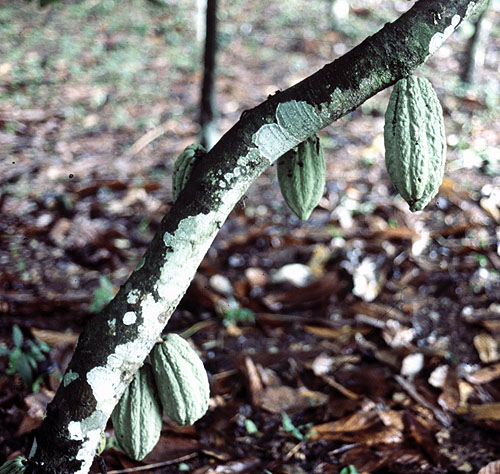
Bees are in crisis, and collapsing colonies and habitat loss threaten the pollination of some important crops. While much current research work focuses on bees, other pollinators, such as midges, which pollinate cocoa plants across the world, must not be forgotten.
The Natural Resources Institute (NRI) is collaborating with the University of Trinidad and Tobago and the Jamaican Cocoa Board to maintain the rich biodiversity that supports improved cocoa production in the Caribbean, in particular the insect pollinator population. This work is part of an African Caribbean and Pacific Science and Technology Programme initiative for Sustainable Development.
Funded by the EU Development Fund to help build scientific capacity in the Caribbean, this €500,000, 3 year project aims to improve yields of the commercial crop cocoa for smallholder farmers in the region. Currently the only option for farmers to increase production is to increase the land they cultivate, but this is detrimental to the environment, and unworkable in the very limited landmass of the Caribbean Islands.
NRI, with a wealth of expertise in insect behaviour, chemical ecology and pollination biology, will be looking specifically at how the cocoa plants are naturally pollinated, an area of research that has previously been overlooked.
Scientists Steve Belmain, Phil Stevenson and Sarah Arnold at NRI will examine the behaviour of insects visiting the cocoa flowers, to determine which species are the most important. Evidence from studies done decades ago suggest midges carry out most of the pollination, but research is needed to help understand their importance, ensure their survival and identify other potential pollinators.
The project will examine what has an affect on the midge population. Farming practices such as the use of pesticides and the removal of ground cover are likely to reduce midge populations. Extreme weather such as drought, flooding and severe tropical storms may also affect midge survival, so it is important to understand what will ensure the abundance and diversity of midges and what can be done to naturally augment their numbers. The impact of a changing climate will also be studied
The first step in the project is to find out which species of midge are pollinating, why they visit the flowers (pollen, nectar rewards), and how they locate the cocoa flowers (odours, colours). NRI scientists will work with cocoa farmers and academic colleagues in Trinidad and Jamaica to carry out fieldwork and perform insect behavioural research back in the UK.
One of the goals of NRI's involvement in this project is to understand how to artificially breed midges that will increase yields of cocoa, thereby increasing farmer incomes without the need to expand cocoa plantations.
A project website will be available soon.

